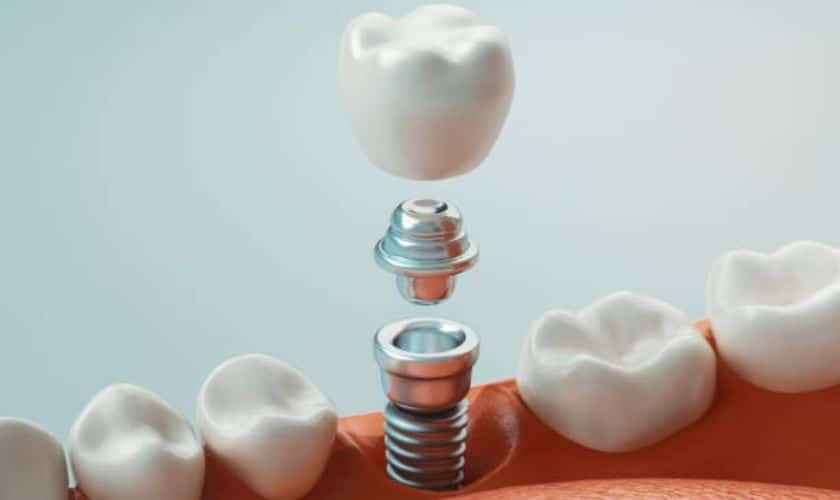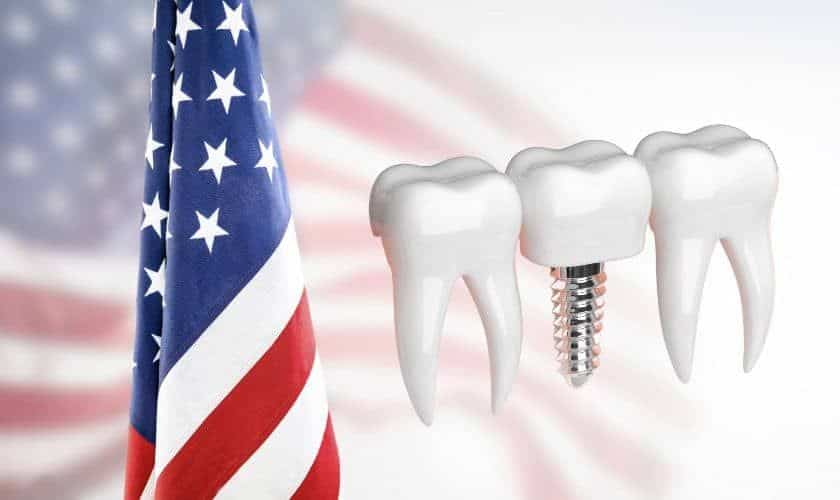Welcome to our blog post on the fascinating world of dental implants! Whether missing a single tooth or multiple teeth, dental implants have become an increasingly popular solution for restoring both function and aesthetics. With advancements in technology and techniques, various types of dental implants are now available to suit different needs. In this article, we will explore the different types of dental implants, discuss how to choose the right one for you, and take a closer look at the process involved in getting dental implants. So let’s dive in and discover everything you need about these life-changing tooth replacements!
The Different Types Of Dental Implants
Regarding dental implants, one size certainly does not fit all. Several different types of dental implants are available, each with unique characteristics and applications.
Endosteal Implants: These are the most common dental implant placed directly into the jawbone. They typically consist of a titanium screw as an artificial root for the replacement tooth or teeth. Endosteal implants provide a strong foundation for single-tooth replacements, bridges, or even full dentures.
Subperiosteal Implants: Unlike endosteal implants that go into the jawbone, subperiosteal implants rest on top of the jawbone but beneath the gum tissue. This type of implant is used when there is insufficient bone height or density to support traditional implants. Subperiosteal implants are custom-made and sit securely on the bone while still providing stability for prosthetic teeth.
All-on-4 Implants: As their name suggests, all-on-4 implants allow you to replace an entire arch (either upper or lower) with just four strategically placed dental implants. This technique maximizes existing bone support and eliminates the need for multiple individual implant placements.
Zygomatic Implants: Zygomatic implants are reserved for individuals who have experienced significant bone loss in their upper jaw area due to periodontitis or trauma. These longer-than-usual dental implants anchor into the cheekbones instead of relying solely on the maxillary bones for support.
It’s important to note that not everyone will be eligible for every type of implant mentioned above. Your dentist will evaluate your specific needs during a consultation and recommend which option is best suited to restore your smile seamlessly.
Remember, choosing the right type of dental implant depends on factors such as your overall oral health, amount and quality of remaining natural teeth or supporting structures like gums and bones, budget considerations, desired outcome, and your dentist’s professional opinion. Understanding the differences between these various types
How To Choose The Right Dental Implant
Choosing the right dental implant is a crucial decision that should be made in consultation with your dentist. With so many options available, it’s important to consider several factors before making your choice.
First and foremost, you need to consider the condition of your jawbone. Traditional dental implants may suit you with sufficient bone density and volume. These implants are placed directly into the jawbone and provide a stable foundation for replacement teeth.
However, alternative options such as mini dental implants or zygomatic implants may be recommended if your jawbone has experienced significant deterioration or if there isn’t enough space between adjacent teeth. Mini dental implants are smaller in diameter and can be used when limited bone structure is available.
Another factor to consider is the location of the missing tooth or teeth. For example, if you’re missing a front tooth, an implant with a natural-looking crown is typically preferred for aesthetic reasons. On the other hand, if you’re missing multiple teeth in different areas of your mouth, an implant-supported bridge or denture might be more suitable.
Additionally, it’s important to discuss any pre-existing conditions or habits that may affect the success of dental implants. Certain health conditions like diabetes or smoking can impact healing and increase the risk of complications.
Choosing the right dental implant requires careful consideration of various factors unique to each individual’s situation. Your dentist will evaluate your oral health needs and help guide you toward making an informed decision that will restore both function and aesthetics to your smile
The Process Of Getting Dental Implants
Getting dental implants is a well-planned and multi-step process that requires the expertise of a skilled dentist. The first step is an initial consultation, where the dentist will assess your oral health and determine if you are a suitable candidate for dental implants.
If you are eligible for the procedure, the next step involves creating a personalized treatment plan. This includes taking x-rays, 3D scans, and impressions of your teeth to ensure precise placement of the implants.
Before starting the implant placement process, any damaged or decayed teeth may need to be extracted. In some cases, bone grafting may also be necessary to provide a solid foundation for the implants.
Once your mouth is ready, the actual implant placement can begin. This involves surgically inserting titanium posts into your jawbone as artificial tooth roots. After this step, there is typically a healing period of several months during which osseointegration occurs – when the implants fuse with your natural bone tissue.
After successful integration, abutments are attached to the implants to support custom-made crowns or bridges. These prosthetic teeth are designed to match your natural teeth in color and shape.
The final step in getting dental implants is attaching these prosthetic teeth to their abutments. Your dentist will ensure they fit properly and make necessary adjustments before securing them permanently.
Remember that each patient’s journey through this process may vary depending on the circumstances. It’s essential to follow all your dentist’s post-operative instructions to ensure proper healing and long-term success of your dental implants.
Source: Gebrüder Betz Medical Animation
In this article, we have explored the different types of dental implants and discussed how to choose the right one for you. We have also walked through the process of getting dental implants.
Remember, dental implants are a long-term investment in oral health and well-being. It is crucial to consult with a qualified dentist or oral surgeon who can assess your specific needs and recommend the most suitable type of implant.
So why wait? Take the first step towards achieving a healthy smile by scheduling a consultation with a trusted dental professional today!





